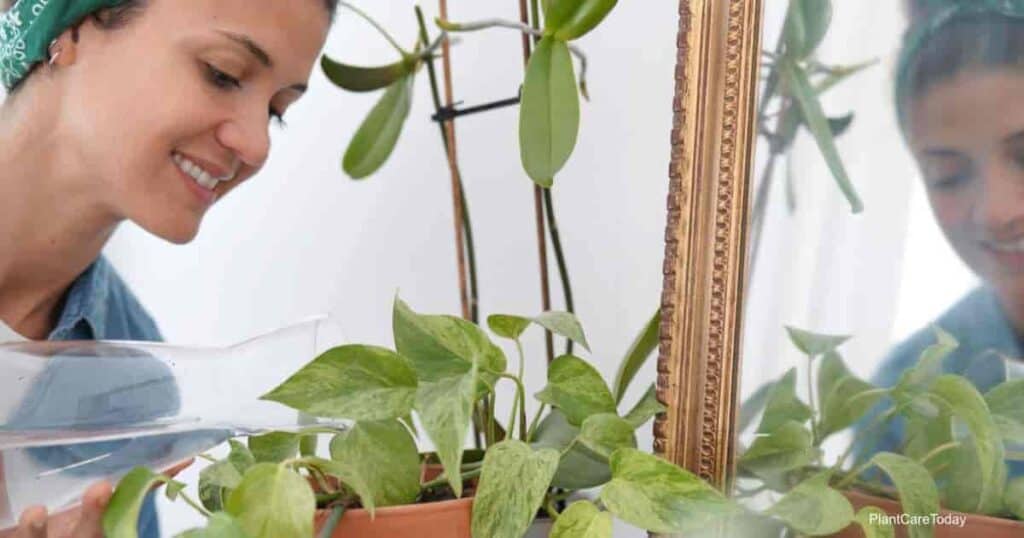To answer this question, we must clarify the difference between soft water and softened water.
Naturally soft water is water that contains few minerals and total dissolved solids. As a result, it has a great deal of carbon dioxide, and it is typically low pH.

Naturally soft water is not bad for plants. However, if you have naturally soft water, be aware that it will not deliver many minerals to your plants, so you may need to supplement.
Note that this is also true of water that has been softened using a reverse osmosis process, ion exchange, or distilled water.
It is also important to understand that naturally soft water tends to leach contaminants from the pipes it passes through, which may be carried to your plants.
What Is Softened Water?
Softened water is a different topic. This is water that has had magnesium and calcium removed through a chemical water softener.
This process makes the water safer for the pipes through which it flows because it does not tend to leach contaminants from the pipes and cause corrosion.
The chemicals used for water softening include:
- Trisodium phosphate
- Sodium carbonate
- Calcium hydroxide
- Ammonia
- Borax
Usually, calcium hydroxide and sodium carbonate are used in combination.
This method necessitates a subsequent sedimentation and filtration process to remove precipitates.
Is Softened Water Bad For Plants?
Generally speaking, softened water is not suitable for plants because it contains a lot of salt, which interferes with the balance of water in the soil and prevents plants from taking up water efficiently.
In the short term, watering with softened water will kill your existing plants.
In the long term, the salt in softened water builds up in your soil and will kill anything that is subsequently planted there.
You will need to wash or leach the salt out of the soil with frequent deep watering using non-softened water.
This treatment will also wash or leach away beneficial nutrients.
For this reason, you’ll need to till the soil deeply and amend it with compost, aged manure, fertilizer, and activated charcoal to get it back into shape for growing.
Softened Water Is Bad For The Environment
Salt delivered into the soil eventually makes its way into waterways.
It’s important to understand that sodium chloride wreaks havoc with the natural environment because it is nearly impossible to remove it once it‘s present.
In fact, just a teaspoonful pollutes five gallons of water permanently. [source]
How Can You Water Your Yard If You Have A Water Softener?
If you are watering your lawn and garden and have a whole system softener, you’ll need to have a special spigot installed that takes water directly from your water line before it is processed through your softening system.
When you have your system installed, ask for a bypass spigot.
You may also have the option of having a reverse osmosis system installed for watering your whole house.
This type of system reduces contaminants (e.g., iron, chlorine, bacteria) in the water and creates clean water.
However, you will need to supplement it with fertilizers and nutrients.
With a reverse osmosis system, you can alter the pH level of the water. This is helpful if you have plants with specific pH needs.
Rain Water Or Spring Water Are Best
For potted and container plants, it’s better to collect rain water or use spring or distilled water for watering.
If you don’t get a lot of rain, you can mix softened water with the rain water you do have.
For the yard and garden, if you do get a lot of rain, it’s alright to water with softened water occasionally because the natural rainfall will dilute the salts in the water.
However, this is far from ideal for all of the aforementioned reasons.